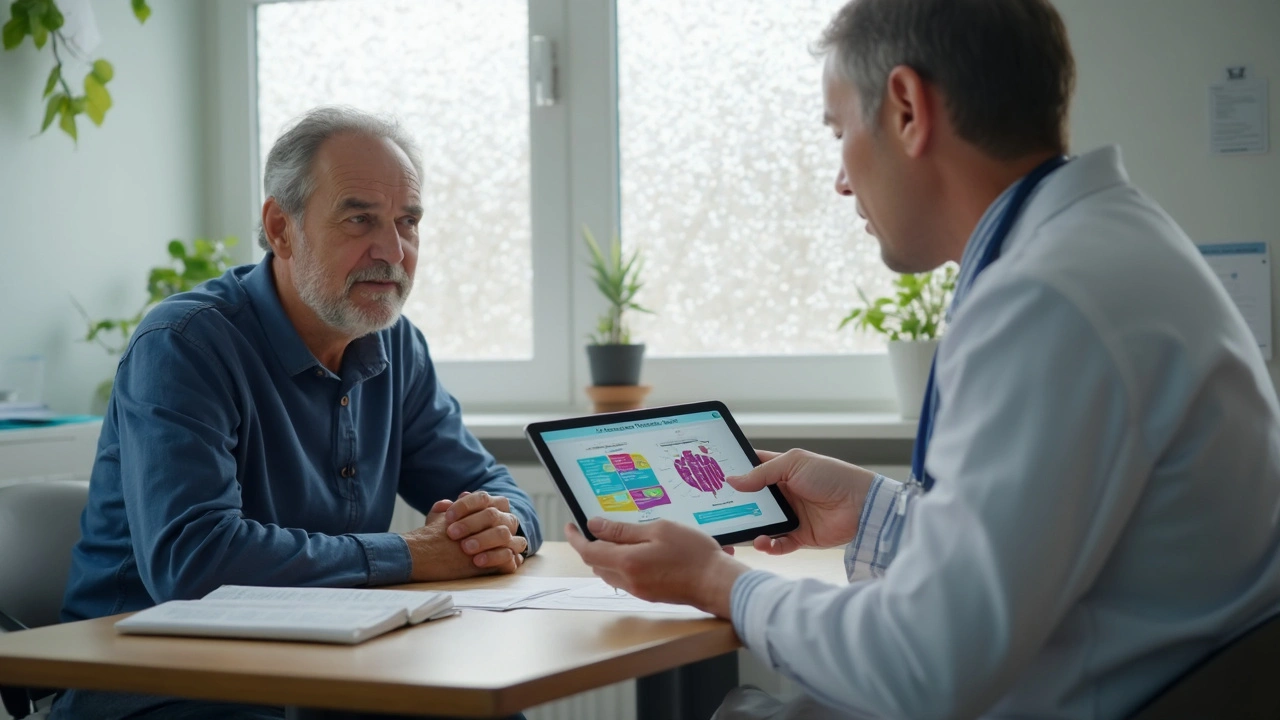Metformin alternatives: what works, what to watch for
If metformin isn’t right for you — because of side effects, kidney issues, or personal choice — there are clear alternatives. This page lists real options, what they do, common benefits and risks, and practical tips to bring to your next doctor visit.
Common drug alternatives
GLP‑1 receptor agonists (like semaglutide, liraglutide) help lower blood sugar and often cause weight loss. They work by slowing stomach emptying and boosting insulin when needed. Expect nausea early on; they’re strong for people who need weight loss plus glucose control.
SGLT2 inhibitors (empagliflozin, canagliflozin) remove glucose through urine. They can lower blood sugar, reduce heart failure risk, and help with kidney protection in some patients. Watch for urinary infections and dehydration; these drugs aren’t ideal if you’re often dehydrated or have a history of genital infections.
DPP‑4 inhibitors (sitagliptin, linagliptin) are gentle on the stomach and usually don’t cause weight change. They mildly lower A1C and have low risk of hypoglycemia when used alone. They’re useful when you need tolerable meds with few side effects.
Sulfonylureas (glipizide, glyburide) and insulin are effective at lowering blood sugar but carry higher hypoglycemia risk and may lead to weight gain. Use these when stronger glucose lowering is needed and with careful blood sugar monitoring.
Pioglitazone (a thiazolidinedione) improves insulin sensitivity. It can work well for some people but may cause fluid retention, weight gain, and is not recommended if you have heart failure.
Lifestyle, monitoring, and choosing the right option
Diet and exercise can replace or reduce medication for some people, especially early in type 2 diabetes. A focused plan — modest weight loss (5–10%), regular brisk walking, and a lower-carb plate — often lowers A1C more than people expect.
Practical checks: ask your clinician about kidney function (eGFR), heart disease history, and risk of hypoglycemia. These guide safe choices. If you switch from metformin, expect follow-ups and possibly lab tests within 2–12 weeks to check A1C, creatinine, and electrolytes.
Cost and access matter. GLP‑1 drugs and SGLT2s can be pricey or need prior authorization. Generic options like sulfonylureas are cheaper but need more monitoring. Bring insurance details and your symptom list to the appointment.
Watch for red flags: severe stomach upset, fainting, signs of low blood sugar (sweating, shaking, confusion), or signs of infection when on SGLT2 inhibitors. If any occur, stop the drug and contact your provider promptly.
Short and useful: ask your doctor how each option affects weight, heart and kidney health, the chance of low blood sugar, and what labs to get. If you want less medication, ask about a structured lifestyle program or diabetes educator referral.
Combining drugs is common: your doctor may pair a GLP‑1 with an SGLT2 or a DPP‑4 with metformin alternatives to hit A1C targets without big side effects. Start low and go slow with doses, learn injection technique if needed, and keep a log of blood sugars for two weeks after changes. Bring that log to appointments — it helps fine‑tune treatment fast.
Cutting-Edge Diabetes Treatments for 2025: SGLT2 Inhibitors, GLP-1 Agonists, and New Alternatives to Metformin

Discover the latest breakthroughs in diabetes management for 2025, as this article explores advanced treatments like SGLT2 inhibitors, GLP-1 agonists, and novel alternatives to metformin. Dive into how these new options change the approach to glycemic control, weaving in the most up-to-date research, practical tips, and real-world facts. The article breaks down mechanisms, pros and cons, and how these drugs are reshaping lives. Readers get the details they need to talk with their doctors and stay ahead in diabetes care. Whether you’re managing diabetes or interested in new therapies, here’s what every patient and caregiver should know.
- April 25 2025
- Tony Newman
- 19 Comments
